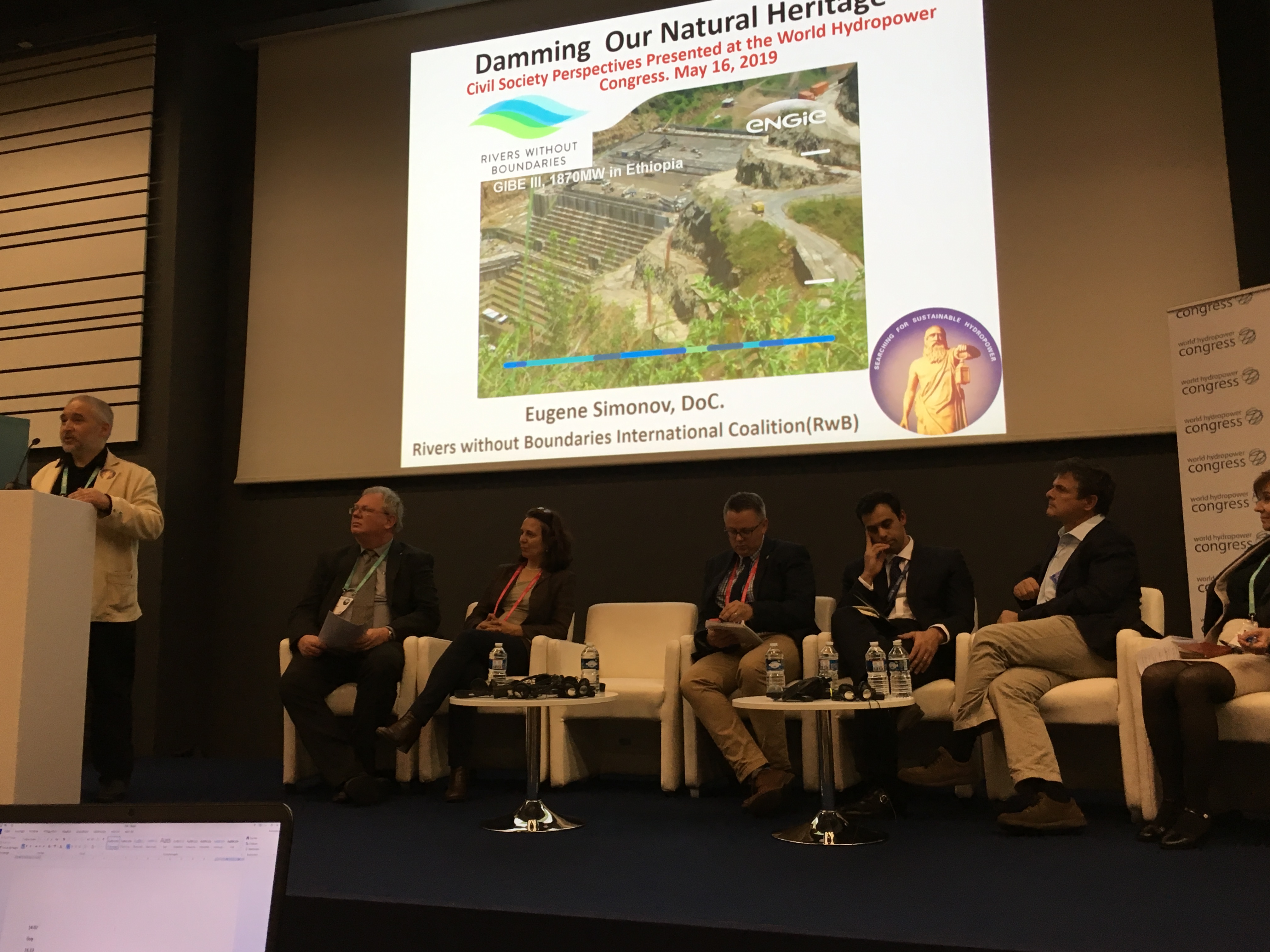
After the RwB coordinator delivered a presentation at the World Hydropower Congress (photo above), a representative of the Three Gorges Corporation made a statement, on which the RwB issued a press-release published by the HydroWorld:
The Rivers without Boundaries (RwB) coalition reports that the China Three Gorges Corporation has announced its commitment to protect World Heritage Sites and its reasons behind not bidding on the Stiegler’s Gorge hydropower plant in Selous Game Reserve, a World Heritage Site in Tanzania.
After this statement, RwB is calling on other hydropower companies to instigate a “no go” policy for UNESCO World Heritage sites.
Hydropower is an important source of renewable energy in many countries across the world, RwB says. However, high-impact hydro projects are a leading cause of connectivity loss in rivers, dramatically impacting their biodiversity and undermining the diverse benefits they provide to people.
A recent study in Nature revealed that just one third of the world’s large rivers remain free-flowing, impacting on freshwater species and the food security and livelihoods of local people. The RwB and World Heritage Watch report “Heritage Dammed,” released last week at the World Hydropower Congress, documents conflicts between hydropower and the protection of 51 world heritage sites, 42 of those being threatened and degraded by hydropower.
“The UNESCO World Heritage Committee considers the construction of dams with large reservoirs within the boundaries of World Heritage properties incompatible with their World Heritage status,” says Eugene Simonov from RwB. “Three Gorges Corporation’s commitment to protect the outstanding universal value of these sites must serve as an example for other hydropower companies to develop World Heritage Site policies.”
These special locations support valuable ecosystems and contribute to economies through tourism and the export of resources. Hydropower companies have a responsibility to ensure they have the necessary policies in place so their industry does not harm World Heritage sites and help safeguard them for future generations, RwB says.
RwB is a coalition of civil society groups and experts created in 2009 to facilitate conservation and sustainable use of transboundary river ecosystems. It is also an active member of the World Heritage Watch Network, which unites grassroots NGOs safeguarding natural and cultural heritage around the world.
Source: HydroWorld 05/22/2019
Readers of the “Heritage Dammed” Report know that the RwB and allies request that “no go” policy extends to all protected areas and key biodiversity areas as well as to all remaining free-flowing rivers.
